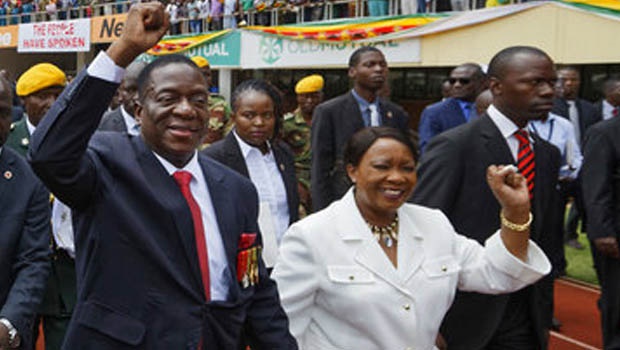Zimbabwe Under Mnangagwa’s Leadership
Last Friday, the people of Zimbabwe saw the dawning of a new morning as Mugabe’s former vice president Mnangagwa, was sworn in as president. For those keeping score, Mnangagwa is the second president to serve in Zimbabwe’s 37-year old history.
Since declaring independence from white-minority rule in 1980, Zimbabwe has only known Mugabe as president. Mugabe’s leadership and ruinous policies left Zimbabwe in turmoil. In 1999, after his constitutional proposal failed, Mugabe set off a campaign of land grabs, which caused the country’s economy to collapse.
Newly inaugurated president Mnangagwa, nicknamed “the crocodile”, is known for his involvement in the ZANU-PF party’s brutal repression of any opposition in the country. While Mnangagwa’s reputation makes some unsure whether he will be able to unite Zimbabwe or not, he wasted no time calling for a unified country. “My desire is to join all Zimbabweans in a new era, where corruption, incompetence, dereliction of duty and laziness, social and cultural decadence is not tolerated. In that new Zimbabwe, it is important for everyone to join hands so that we rebuild this nation to its full glory. This is not a job for ZANU-PF alone, but for all people of Zimbabwe.”
Since Mnangagwa was neither elected nor appointed, he will have to ensure all traces of Mugabe’s presidency have been dismissed and introduce himself to the people of Zimbabwe. Taking a step in the right direction, Mnangagwa has promised to crack down on corruption and build a leaner government by merging agencies to run more efficiently.
Going forward, the people of Zimbabwe, as well as Mnangagwa, have their work cut out for them. Adjusting to life post-Mugabe will be different for many Zimbabweans, as many have little recollection of a time before Mugabe. Mnangagwa will have to dismantle ‘Mugabeism‘ and rebuild the country’s economy from the ground up. Fixing Zimbabwe’s economy will no doubt begin with showing the international community that the country is stable in order to secure investment.
While Mnangagwa certainly has an uphill battle ahead of him, he does have some important advantages. Roughly two decades younger than his predecessor, Mnangagwa has the potential to reach Zimbabwe’s youth. Aside from age, ideology is working in his favor. As a pragmatist, Mnangagwa is more flexible than Mugabe in his political approach, and has made clear his desire to unite a once fragmented country.
As with most countries emerging from tumultuous leadership, the next few months will serve as a forecast for the success or failure of the new government. In the wake of Mugabe’s exit and Mnangagwa’s entrance, Zimbabwe has taken great strides to move in the right direction. The success of Mnangagwa’s fledgling presidency will be measured on his leadership ability to unite his country and make good on his inauguration promises of putting the people of Zimbabwe first. Here’s hoping that Mnangagwa’s leadership will reignite the economy of Zimbabwe and bring jobs to a country that has suffered far too long.

